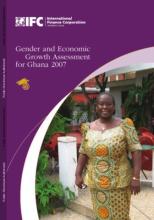Land Library
Welcome to the Land Portal Library. Explore our vast collection of open-access resources (over 74,000) including reports, journal articles, research papers, peer-reviewed publications, legal documents, videos and much more.
/ library resources
Showing items 1 through 9 of 19.Developing new land policies can be a long and difficult process. It is even more so if the policies are to be pro-poor – if they are to help correct the disadvantages that poor people typically suffer in many areas of land policy.
This guide presents a general overview on institutional harmonisation processes, i.e. the various factors and tools included in fostering institutional harmonisation in a sector.
This publication is a summary report of the seminar "Improving Slum Conditions through Innovative Financing", which was jointly organized by the International Federation of Surveyors (FIG) and the United Nations Human Settlements Programme (UN-Habitat) and took place in Stockholm, Sweden on 16–17
This publication on Secure Land Rights for All demonstrates how secure land rights are particularly important in helping to reverse three types of phenomena: gender discrimination; social exclusion of vulnerable groups; and wider social and economic inequalities linked to inequitable and insecure
The Government of Tanzania is committed to supporting women entrepreneurs with both policy and practical support. The Government of Tanzania has made impressive strides in supporting women entrepreneurs, and its policies reflect a commitment to advancing women.
This study presents an assessment of the role of gender in economic growth in Ghana with emphasis on constraints to enterprise operations, investment, and growth among women owned firms.
The report seeks to analyze what has been learned about how agricultural interventions influence nutrition outcomes in low-and middle-income countries, focusing on the target populations of the millennium development goals-people living on less than a dollar a day.
This report seeks to present micro evidence on how environmental changes affect poor households. It focuses primarily on environmental resources that are outside the private sphere, particularly commonly held and managed resources such as forests, fisheries, and wildlife.
Recognition of the importance of institutions that provide security of property rights and relatively equal access to economic resources to a broad cross-section of society has renewed interest in the potential of asset redistribution, including land reforms.









